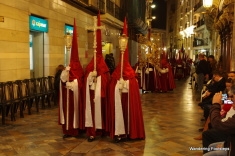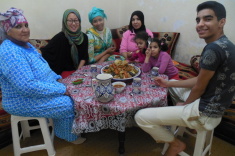I just finished reading a really nice book of short stories written by an up-and-coming Zimbabwean writer. The book is called “An Elegy for Easterly” by Petina Gappah.
I have read a few books by Zimbabwean authors, including “The Crocodile Eats the Sun” by Peter Godwin, and “The Last Resort” by Douglas Rogers. Both of those memoirs were interesting, as they taught me more about the troubles between the blacks and whites in Zimbabwe over the last 20 years, focusing primarily on the land reform issue (which I have touched on in previously blog entries). But both of those books were from a white man’s perspective – they bemoaned the injustices done towards them by the war vets and the post-independence Zimbabwean government, begging for pity from their readers. And, truth be told, I did pity them, and I did grasp the complicated race relations here in Zim just a little bit more.
But, I haven’t much had the chance to hear the black person’s perspective in my time here. Oh, sure, there have been ample conversations with Salathiel the driver on issues such as the indigenization of the work force, and I have talked with the maids here and there about the injustices they feel as they work for the white man.
This book allowed me to hear many different black perspectives on life in Zimbabwe since independence. From stories of war hero widows who feel a sense of dishonesty and injustice from the president to families living in the temporary stuctures of the townships, which are raized every time an important dignitary comes to visit the country; from the families who have relatives abroad and depend on them for their survival to the nouveau-riche black women who their time idly by as their husbands shadily prosper from the “new” regime; and from the brides of obvious Aids-sufferers to the husbands who seek love outside of their marriage.
Each of these stories has brought me a little closer to understanding black Zimbabwean culture. Perhaps this is complemented by the fact that I have finally made friends with some “locals” in town, and spent the last few weeks wondering about little things here or there that I notice. This book fills in my knowledge gap just a little. I am still completely baffled with these people – these people who swindle one another, who find the need to demonstrate their superiority at any occasion, who are as obsessed with promiscuity as they are with making a buck, and whose close relationship with death gives them a sense of humour I will never achieve – but I now at least understand the things I am baffled about.
What seems most obvious from this book is that, despite what Salathiel the driver may believe, most black people’s lives have not improved throughout the course of the Mugabe years; but, unlike the whites, who must drink to forget and to soak up their bitterness, the black people here face their past and present with a shrug, a tootless grin, and an iota of hope for the future.
Wandering Footsteps: Wandering the World One Step at a Time » A travel journal following a family on their overland trip around the world.
|
|
|


